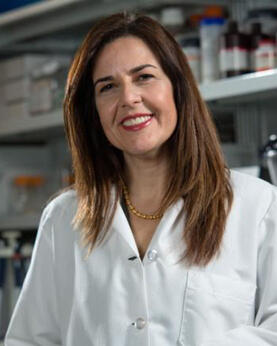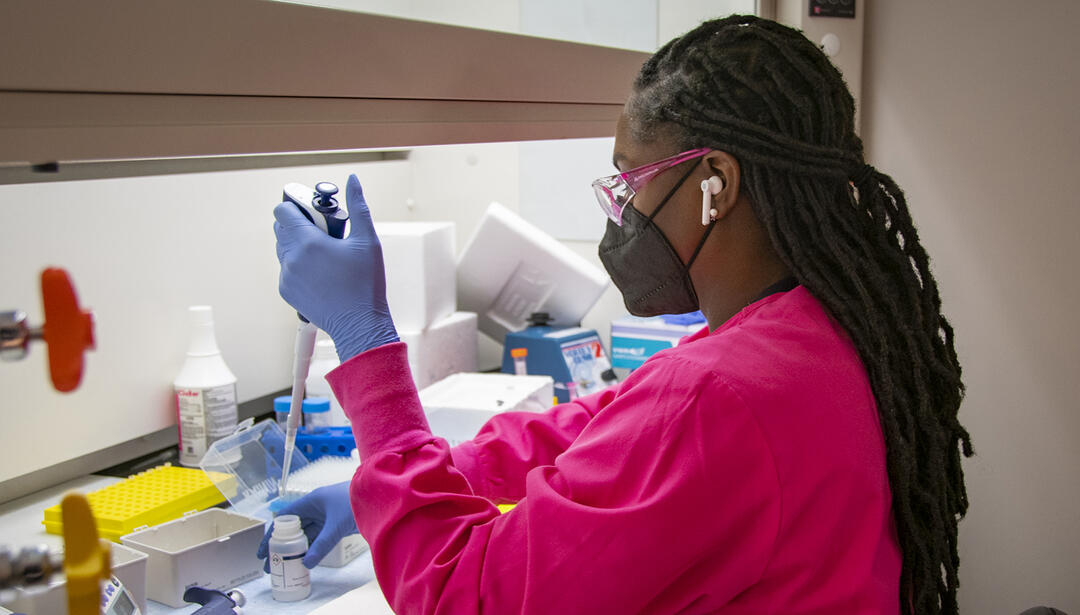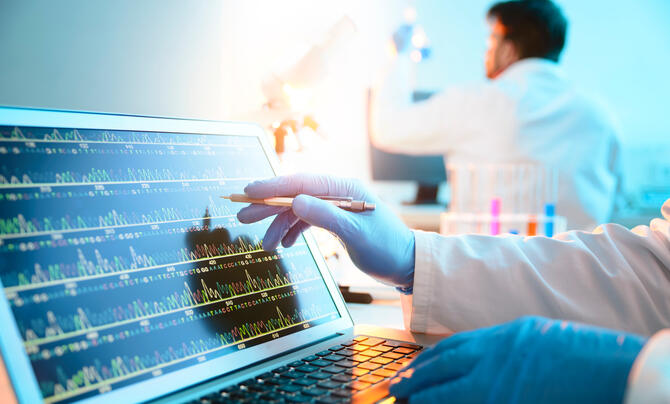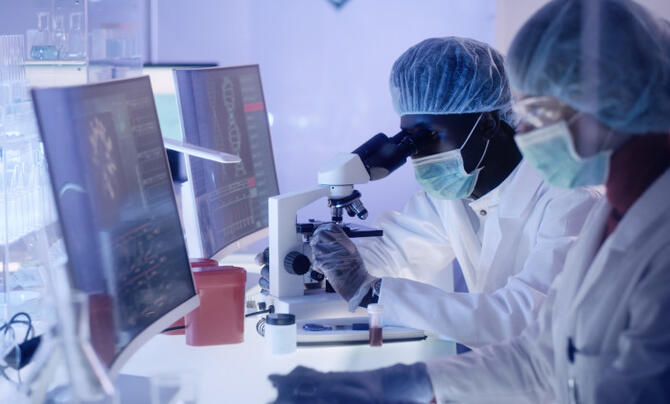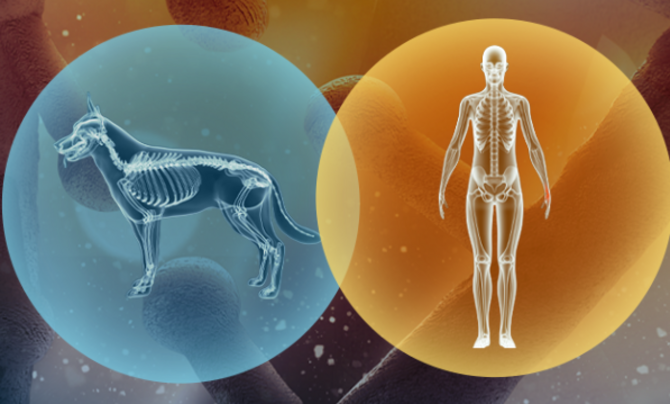
Leidos Biomedical Research
A 25-year partnership in biomedical innovation
For more than 25 years, Leidos Biomedical Research has partnered with the National Cancer Institute (NCI) to operate Frederick National Laboratory for Cancer Research, the only National Laboratory focused exclusively on biomedical research.
The laboratory’s mission is to provide a unique national resource for the rapid development of new technologies to address some of the most urgent and demanding problems in the biomedical sciences, including cancer, ongoing unmet challenges in HIV/AIDS, and threats of emerging infectious diseases. Leidos Biomedical Research brings innovative approaches to genetics, genomics, protein science, proteomics, high-performance biomedical computing, virology, immunology, and clinical operations to enable this mission.
We provide scientific and operational support to the NCI, the National Institute of Allergy and Infectious Diseases, and several other of the National Institutes of Health’s 27 institutes and centers. As a national laboratory, our team collaborates with both intramural and extramural investigators to accelerate technology development aimed at solving public health challenges.
Our commitment to this unique partnership is on display through our work with various government agencies and academic institutions. We appoint and exchange scientists, host postdoctoral fellows, and train students at major universities, local small liberal arts colleges and historically black colleges and universities. Leidos Biomedical Research hosts seminar series and symposia for the scientific community as well.
Critical research for global public health challenges
-
Accelerating Therapeutics for Opportunities in Medicine (ATOM)
ATOM is a public-private consortium that aims to improve the preclinical challenges of drug discovery by significantly accelerating the development of effective therapies for cancer patients. We’re transforming drug discovery from a slow, sequential, and high failure rate process into a model that merges diverse biological data, high-performance computing, and emerging biotech capabilities into an integrated precompetitive platform. Similar approaches are being used at FNLCR as part of the Cancer Moonshot initiative.
-
Advancing nanotechnology in cancer therapeutics
We operate the NCI's Nanotechnology Characterization Laboratory, which is an interagency collaboration among NCI, the National Institute of Standards and Technology, and the Food and Drug Administration focused on accelerating the translation of promising nanotech cancer drugs and diagnostics. The NCL provides a series of comprehensive characterization of nanoparticles using standardized methods, conducts structure activity relationships studies, facilitate regulatory review of nanotech constructs and engages in educational and knowledge sharing efforts.
-
Advancing scientific insights of cancers driven by RAS mutations
The NCI’s RAS Initiative aims to target cancers driven by the Ras Sarcoma viral oncogene homolog, or RAS. RAS mutations lead to one-third of all human cancers. Using state-of-the-art approaches, this important work is carried out at FNLCR and through a vast network of collaborations with scientists in both the private and academic sectors.
Learn more about the RAS Initiative
-
Access to high-resolution imaging
FNLCR’s National Cryo-EM Facility (NCEF) was established in 2017 with the mission to address the gap between need for cryo-EM and access to expensive instrumentation. Despite the emergence of cryo-EM as a powerful high-resolution imaging method, its use is hampered by inadequate access to equipment and a limited workforce. NCEF meets the needs of cancer researchers who are engaged in structural biology cryo-EM research and do not have access to these instruments at their own institutions and has completed over 350 studies from 39 institutions to date.
Learn more about our work
Frederick National Laboratory is one of 18 national laboratories, and the only one dedicated to biomedical sciences. Our work creates a culture that empowers employees, sparks innovation, and addresses the most urgent challenges in biomedical research.
World-class scientific talent
Our experts are committed to solving the world’s most critical public health challenges, driving scientific discoveries and biomedical advancements. Meet some of our Leidos Biomedical Research team!


